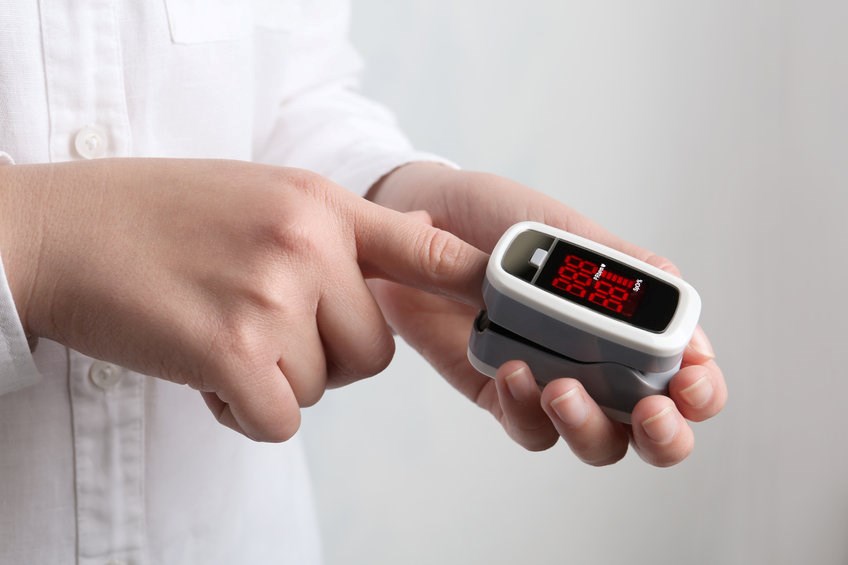Pulse Oximeters: What Are They? And Do I Really Need One at Home?

What is a Pulse Oximeter?
Clinics and hospitals around the world use pulse oximeters to test patients’ heart rate and oxygen saturation levels.
Let’s break that down a bit.
- Your heart rate is the number of times your heart beats per minute (bpm). A good resting heart rate falls between 60 and 100 bpm.
- Your blood oxygen saturation – or SPO 2 – level depicts the amount of oxygen entering into your bloodstream from your lungs. Low blood oxygen saturation – often called hypoxia – can cause headaches and even heart function loss or brain impairment.
In essence, pulse oximeters can tell how well you are breathing and how efficiently your blood carries oxygen to the parts of your body that are furthest away from your heart.
How are Pulse Oximeters Used?
Medical professionals use these non-invasive diagnostic tools both in regular well-check appointments and to closely monitor the blood oxygen levels of people suffering from a variety of breathing and cardiovascular conditions.
These conditions may include:
- asthma
- anemia
- lung cancer
- pneumonia
- chronic obstructive pulmonary disease
- congenital heart defects
- heart attack or failure
- and more
Pulse oximeters can also be used to tell whether a patient needs breathing assistance, to test certain lung medications and breathing therapies, or to monitor breathing during a sleep study.
During the pandemic, the clip-on fingertip devices found even greater use – as the COVID-19 virus can negatively impact blood oxygen levels. Spurred on by this new discovery, more people have started purchasing their own pulse oximeters to track their levels at home.
Why Use a Pulse Oximeter at Home?
Just like people went overboard stocking up on toilet paper and hand sanitizer amid the pandemic, they’ve treated pulse oximeters in a similar way.
Over the last couple of years, a question started to arise in medical circles: Are pulse oximeters truly a reliable way to test for COVID-19?
Medical experts have gone back and forth about this, some recommending the home device for routine symptom checks and others asserting that the daily tests are unnecessary for young people with good overall health.
Despite the ongoing debate about the necessity of pulse oximetry devices in the home, the convenient, daily access to blood oxygen testing makes a lot of sense for some people – i.e. those who are prone to the breathing and cardiovascular conditions listed above.
A regular pulse oximetry test can tell at-risk patients when it’s time for a trip to the doctor’s office or emergency room. For many, this provides an essential peace of mind.
NOTE: Remember, only an experienced medical professional should be trusted for definite diagnosis and treatment. Home pulse oximeters can tell you a lot, but your doctor’s top-grade medical equipment and expertise are truly the most reliable resource.
~
Need help finding a home pulse oximeter?
Use our home medical equipment locator to find a supplier near you.
